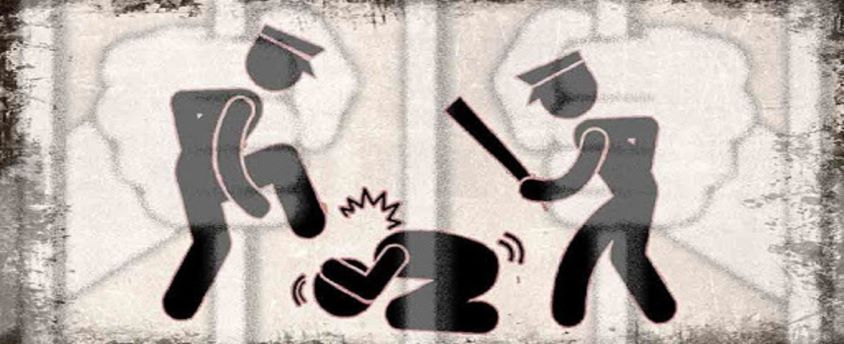Highest number of custodial deaths reported in Gujarat in the last 5 years
17, Feb 2023

Prelims level : Governance- Policies
Mains level : GS-II Government policies and interventions for development in various sectors and issues arising out of their design and implementation.
Why in News?
- According to the Ministry of Home Affairs (MHA), the highest number of custodial deaths has been reported in Gujarat (80) In the last five years.
What is Custodial Death?
- When an alleged accused has been prosecuted or killed before receiving the orders of such prosecution from the court of law is known as custodial violence/death.
- It violates the fundamental rights of a citizen under Article 14 (Right to Equality), 21 (Right to Life), and 22 (Protection against arrest and detention in certain cases) of the Indian Constitution.
Data Related to Violence in Custody:
- According to National Crime Records Bureau (NCRB) data, between 2001 and 2018, only 26 policemen were convicted of custodial violence despite 1,727 such deaths being recorded in India.
- Only 4.3% of the 70 deaths in 2018 were attributed to injuries during custody due to physical assault by police.
- Except in Uttar Pradesh, Madhya Pradesh, Chhattisgarh and Odisha, no policeman was convicted for such deaths across the country.
- Apart from custodial deaths, more than 2,000 human rights violation cases were also recorded against the police between 2000 and 2018. And only 344 policemen were convicted in those cases.
Reasons for Low Conviction:
- Most of custodial deaths were attributed to reasons other than custodial torture, which included suicide and death in hospitals during treatment.
Reasons Behind Custodial Violence:
- Absence of Strong Legislation: India does not have an anti-torture legislation and is yet to criminalise custodial violence, while action against culpable officials remains illusory.
- Institutional Challenges: The entire prison system is inherently opaque giving less room to transparency.
- Excessive Force: The use of excessive force including torture to target marginalised communities and control people participating in movements or propagating ideologies which the state perceives as opposed to its stature.
- Not Adhering to International Standard: Although India has signed the United Nations Convention against Torture in 1997 its ratification still remains.
- While Signing only indicates the country’s intention to meet the obligations set out in the treaty, Ratification, on the other hand, entails bringing in laws and mechanisms to fulfil the commitments.
Constitutional and Legal Provisions:
- Protection from torture is a fundamental right enshrined under Article 21 (Right to Life) of the Indian constitution.The right to counsel is also a fundamental right under Article 22(1) of the India constitution.
- Section 41 of Criminal Procedure Code (CrPC) was amended in 2009 to include safeguards under 41A, 41B, 41C and 41D, so that arrests and detentions for interrogation have reasonable grounds and documented procedures, arrests are made transparent to family, friends and public, and there is protection through legal representation.
Way Forward:
- India should ratify the UN Convention Against Torture: It will mandate a systematic review of colonial rules, methods, practices and arrangements for the custody and treatment of persons subjected to any form of arrest, detention or imprisonment.
- Police Reforms: Guidelines should also be formulated on educating and training officials involved in the cases involving deprivation of liberty because torture cannot be effectively prevented till the senior police wisely anticipate the gravity of such issues and clear reorientation is devised from present practices.
- Access to Prison: Unrestricted and regular access to independent and qualified persons to places of detention for inspection should also be allowed. CCTV cameras should be installed in police stations including in the interrogation rooms.
- Surprise inspections by Non-Official Visitors (NOVs) should also be made mandatory which would act as a preventive measures against custodial torture which has also been suggested by Supreme Court in its landmark judgment in the DK Basu Case in 2015.
- Implementation of Law Commission of India’s 273rd Report: The report recommends that those accused of committing custodial torture – be it policemen, military and paramilitary personnel – should be criminally prosecuted instead of facing mere administrative action establishing an effective deterrent.






